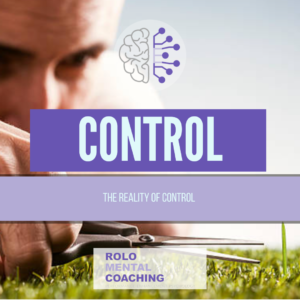RMC Weekly Blog: The Reality of Control

When we work with people who show signs of perfectionism or issues of insecurities, we often start our coaching on the reality of control and what it really is.
Imagine blowing soap bubbles. The larger you try to make them, the more fragile they become. Small bubbles fly away in the wind like any other bubbles much larger than them, but they stay more compact and go with the flow. Larger bubbles try to stay on course and will end up much more likely to encounter obstacles because of their size resulting in bursting their beautiful intention. Most control is rooted in good intentions, and when overinflated, it can result in the opposite effect of the desired. Many people then become stuck in a cycle of wanting to introduce even more control in order to try to have more influence on the outcome. Because the focus now has become control itself, the issues that could clearly indicate that someone is overstepping or causing harm to oneself or another become more blurred. Often people who have arrived at this stage will not be able to see their effects on others until a dramatic event, so shocking, will give them a chance to look at their behavior again. (e.g. divorce or getting fired)
Then what should one focus on to not get trapped in this cycle?
Can one really control anything other than their own self? A thought another might have about us or if someone will like our ideas? All we can do is react to events that are triggered by events or other people.

We talk about behavior that is in our control. The language we want to use, the thoughts we choose to act on. When we truly stand still and think about what we really can control, things can become very clear and set up a path of mindfulness and enlightenment where one can be free to react to their environment where things are constantly changing, knowing that nothing is stagnant. Everything will always be moving forward, no matter if we feel in control or not.
Life will happen, so when you grab a soup bar and lather up your hands, do it gently, or it might jump out of your hands.
Bruce Lee once spoke about water. To be like water is to become any shape that it encounters. For example, when you pour it into a cup, it becomes the cup. It can even change into vapor if things get too hot. Or when things get very cold, it will become solid. Try to forcefully push water away from you in a pool. You will receive twice as much water back to you. This is why we coach people to become aware of what waves they are making because they will get twice as much back to them. Better make positive waves then, we say.
Focus on the things that we truly can control, have the awareness when we don’t have control, and have the wisdom to know the difference between these two. (Derived from the serenity prayer)
Rolo Mental Coaches are specialists in high-performance coaching.
Follow us on Instagram and FaceBook.
If you are interested in working with RMC, feel free to reach out to us via our contact page by clicking here.

